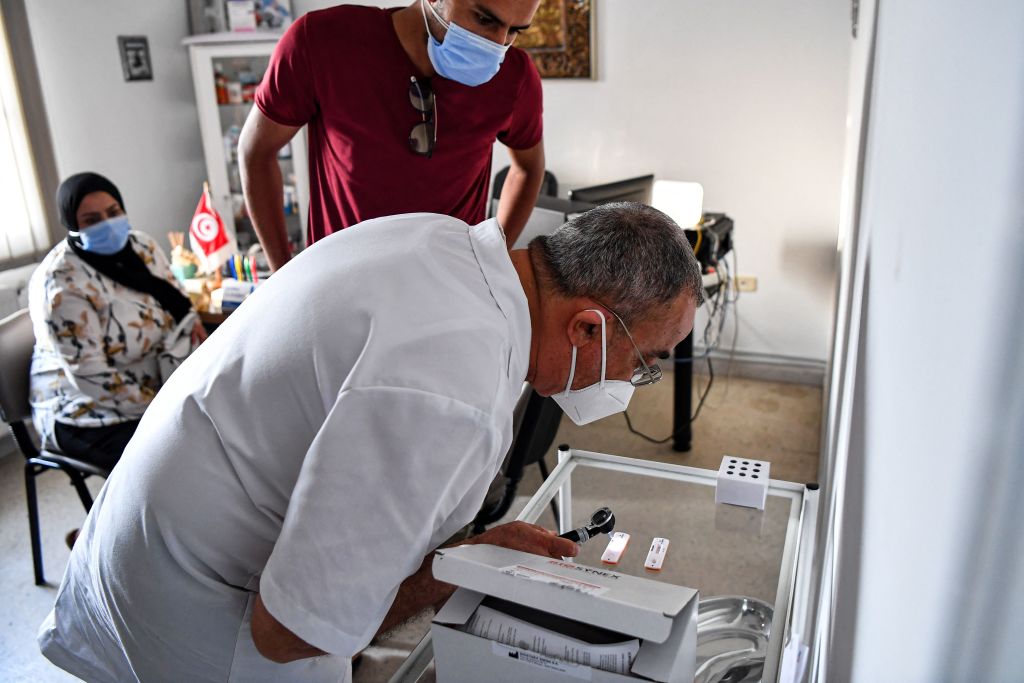Shorter Incubation Times Reported as COVID-19 Evolves
ADF STAFF
The incubation period of the COVID-19 strains has gradually decreased, according to a study published in August by the Journal of the American Medical Association.
That means that more recent COVID-19 patients may experience more serious symptoms faster, but shorter incubation times also mean there is less time for people to unknowingly spread the virus.
Incubation times for the omicron variants currently spreading around Africa are 3.42 days, the study showed. Incubation periods for the earlier alpha and beta variants were about 5 days.
“At present, some countries around the world require close contacts to be isolated for 14 days,” the researchers wrote. “However, with the shortening of the incubation period of new variants, the isolation period can be adjusted appropriately to reduce the pressure on the health system.”
Patients infected by the omicron subvariants BA.5 and BA.4, which are currently circulating on the continent, typically experience milder symptoms than those caused by earlier variants. However, patients still face the possibility of hospitalization or death.
Test to Treat
In late September, the Africa Centres for Disease Control and Prevention (Africa CDC) announced a “Test to Treat” initiative that aims to increase testing efforts to reduce COVID-19 transmission, treat coronavirus patients and establish measures to limit the virus’s spread.
Response measures include rapid testing, treatment options and oxygen therapy for moderate-to-severe infections at “one-stop” testing sites. The measures can be updated as new variants emerge.
“The main purpose is to reduce a surge in health care facilities by task-shifting and sharing, triaging to home and community care in time to prevent unnecessary hospitalizations,” reported the Africa CDC.
African nations involved in Test to Treat are Botswana, Côte d’Ivoire, Ghana, Lesotho, Malawi, Mozambique, Rwanda and Senegal, the United States Agency for International Development (USAID) said in a news release.
USAID allocated $50 million to expand access to medical oxygen to support health facilities in Côte d’Ivoire, Democratic Republic of Congo, Eswatini, Ghana, Lesotho, Malawi, Mozambique, Nigeria, Tanzania, Zambia and a few countries outside Africa. Medical oxygen is critical in treating patients with severe COVID-19.
Call for Increased Support
Several sub-Saharan African countries are also participating in the newly formed COVID Treatment Quick Start Consortium. The 18-month project is designed to test and treat those at high risk of contracting the virus. It includes a donation of 100,000 doses of the antiviral Paxlovid pill.
A November 2021 study showed that Paxlovid is almost 90% effective in preventing COVID-19-related hospitalizations and deaths in high-risk adults when administered within three days of symptom onset. The pill can be widely used as an at-home treatment to ease the strain on health systems and reduce infections of health care workers.
During the recent United Nations General Assembly, several African leaders called for support to strengthen the continent’s public health institutions, including the Africa CDC, which in February was granted autonomy by the African Union in order to fulfill its mission to mitigate the pandemic’s spread.
“If you don’t have strong public health institutions before an emergency, when the emergency comes it doesn’t matter how many resources you have,” Dr. Ahmed Ogwell Ouma, acting director of the Africa CDC said on the agency’s website. “You’ll still struggle.”


Comments are closed.